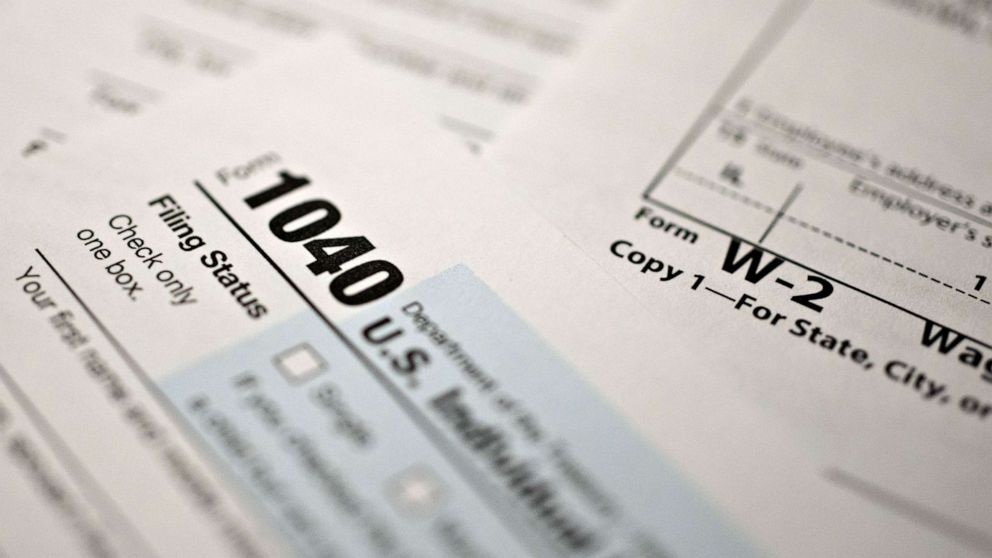As Americans file their tax returns for 2020 – a year riddled with job insecurity – millions who depended on unemployment insurance during the pandemic will find that up to $ 10,200 of those benefits will be tax-free.
The tax cut is part of the American Rescue Plan, President Joe Biden’s $ 1.9 trillion relief package, which also includes direct payments to Americans in 2021.
The unemployment income exemption is the result of a compromise between Democrats and Republicans to get the package approved. They agreed to reduce extended weekly unemployment benefits from $ 400 to $ 300, but also to continue the federal push until September 6 and release the first $ 10,200 income tax for unemployed Americans earning less than US. $ 150,000.
Brian Galle, a professor at Georgetown Law School, analyzed the impact of The Century Foundation, a progressive think tank, analyzing the nearly $ 580 billion in unemployment benefits sent to more than 40 million Americans in 2020.
The Century Foundation study estimates that the average unemployed American received $ 14,000 in unemployment benefits during 2020, so the tax exemption can drastically reduce the amount owed by many families.
Galle notes that low-income people are particularly benefited.
“And if you have a big tax bill to be forgiven, it’s because you’ve been out of work for a long time,” said Galle. “And therefore, the greater the benefit you get from this tax cut, the more difficult the 2020 period will be.”
Galle notes that many Americans who are unaware that their unemployment benefits are taxed may not be prepared for the government’s “surprise account”.
All Americans who have received unemployment insurance will receive a 1099-G form that details how much the individual or family received in benefits in fiscal 2020.
The IRS recommends using this form to complete Form 1040, the standard tax spreadsheet. In lines 7 and 8 of the form, you include how much unemployment insurance you and your spouse received and add up these numbers. The total number is the amount of “unemployment insurance excluded from your income”.
Should Americans who have already declared taxes unaware of the $ 10,200 exemption have to file a corrected statement?
“Absolutely not,” said IRS chief Charles Rettig in a statement at the Capitol on Thursday.
“We believe that we are sensitive to the situation in which people find themselves. We believe that we will be able to handle this on our own. We believe that we will be able to automatically issue refunds associated with the $ 10,200,” Rettig told lawmakers.
This may mean that Americans who have taken advantage of the tax cut will have to wait for any refunds they are entitled to, as the IRS works to process a huge backlog of claims. Retting told Congress that he expects the rollover to be processed by “summer”.
Galle notes that most states will fall under federal tax legislation, but he says there are about 12 states that can levy taxes on unemployment insurance, even with federal exemptions.
Although many of the provisions of the American bailout plan have been criticized, tax cuts are less contested, for example, than direct payments.
“It is different from sending checks to all Americans – this provision is at least directed at people who have lost their jobs,” said Adam Michel, senior policy analyst at the Heritage Foundation, a conservative group of ideas.
Some Republicans, like Sen. Rob Portman, R-Ohio, questioned the inclusion of the measure in the American bailout plan, with some opponents saying it would encourage Americans to stop working.
“The economy is improving, and everyone says that when you look at what happens in relation to [unemployment insurance], if it is too high, it is a disincentive to work, “said Portman.” You want to have a system that is balanced, where you encourage people to work, there are so many places in our states that are working for employers now.
Senator Ron Wyden, D-Ore., A strong supporter of the measure during the negotiations in early March, disagreed, arguing that the income exemption protects families that fought during the pandemic.
“For example, if you have been fired from your job without guilt and are struggling to survive, you don’t have a thousand dollars to pay a surprise tax bill and the part you claim to be paying tax relief to working families offers absolutely nothing,” said Wyden.
The provision applies only to fiscal year 2020, although experts like Galle think it makes sense to make it permanent.
“This should be permanent because it never made sense to tax unemployment insurance benefits,” said Galle. “We don’t tax SNAP … we don’t tax school lunch programs, and the reason is because the goal of the program is to transfer money to people when they really need it, and it just doesn’t make sense to give money to people with disabilities. one hand and take it out with the other. “
ABC News’s Trish Turner and Allison Pecorin contributed to this report.
